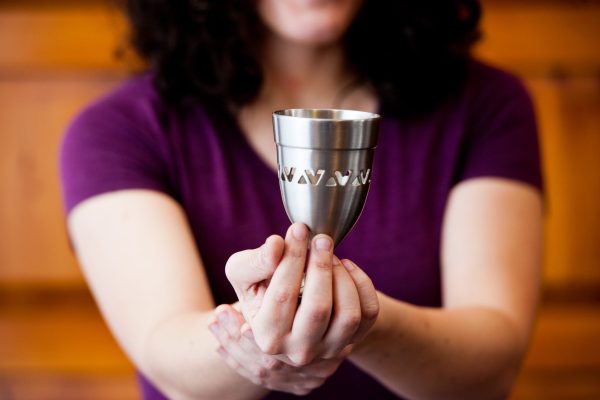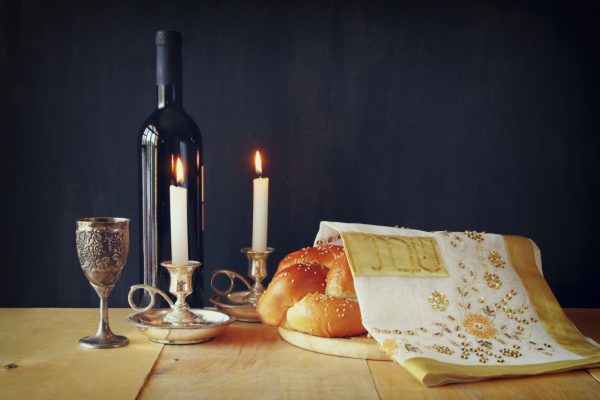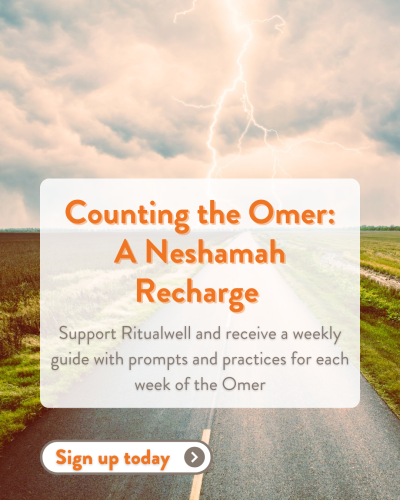Traditional Masculine Blessing
בָּרוּךְ אַתָּה אֲדֹנָי אֱלֹהֵינוּ מֶלֶךְ הָעוֹלָם בּוֹרֵא פְּרִי הַגָפֶן
Barukh Atah Adonay Eloheynu Melekh ha’olam borey p’ri hagafen.
Traditional Feminine Blessing
בְּרוּכָה אַתְּ יָהּ אֱלֹהֵינוּ רוּחַ הָעוֹלָם בּוֹרֵאת פְּרִי הַגָפֶן
B’rukha At Yah Eloheynu Ruakh ha’olam boreyt p’ri hagafen.
You are blessed, Our God, Spirit of the World, who creates the fruit of the vine.
Non-gendered Blessing
The following alternative kiddush was written by Marcia Falk, a prominent Jewish feminist liturgist. Her blessings avoid the problem of God’s gender because they do not reference God as a person-like being. In addition, they locate the power of blessing with the people (“Let us bless” rather than with God’s inherent blessedness (“Blessed are you”)
נְבָרֵךְ אֶת עֵין הַחַיִּים מַצְמִיחַת פְּרִי הַגָפֶן
N’vareykh et Eyn Hahayim matzmikhat p’ri hagafen.
Let us bless the Source of Life that ripens the fruit on the vine.
Excerpted from The Book of Blessings: New Jewish Prayers for Daily Life, the Sabbath and the New Moon Festival; Harper, 1996; paperback edition, Beacon, 1999; © 1996 Marcia Lee Falk. Used by permission of the author. www.marciafalk.com













